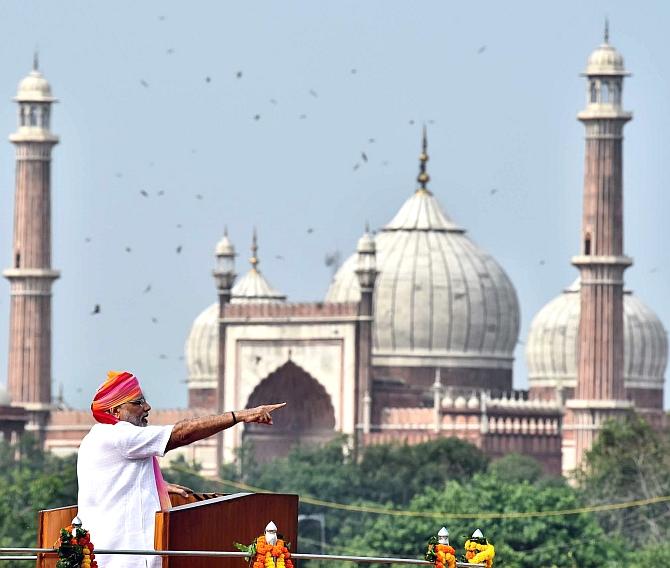Entry of a higher number of technocrats, an appraisal system for civil servants and the benefits of changing the financial year may feature in the PM’s fourth I-Day speech. Arup Roychoudhury and Sanjeeb Mukherjee report.

Prime Minister Narendra Modi is likely to touch upon bureaucratic reforms and a change in the financial year cycle, among other issues, when he delivers his fourth Independence Day speech from the ramparts of the Red Fort next week.
Highly placed sources said bureaucratic overhaul was the next big thing on Modi’s reform agenda and encompassed changes to the process of appraisals and appointments, besides allowing the lateral entry of more outsiders into the “steel frame” of governance.
The PM’s Independence Day speeches have been known for flagging the government’s achievements as well as planned reforms. For example, Modi has spoken at length about initiatives such as rural electrification and affordable housing in his previous speeches.
“A number of ideas are being considered on this front. The PM’s speech may contain some details about planned reforms to the way governance is carried out,” said an official.
On the cards are the lateral entry of a higher number of technocrats and an appraisal system for civil servants that goes way beyond annual confidential reports. Such an appraisal system could take into account officers’ reputation for probity and dedication and innovative solutions at grass-roots level. Such a system could affect everything from promotion to postings.
Another initiative on which the PM could elaborate further on in his speech, is the change in financial year from April-March to January-December.
Though the PM might not formally announce the date for such a shift, he was likely to explain the benefits of the move, a second official said, adding that the government considered this to be a major economic reform after demonetisation and the goods and services tax.
He could also speak on the benefits that have been passed on to the masses after demonetisation, and the planned merger of State-owned banks. He had first talked about the financial year change in a governing council meeting of the NITI Aayog where all states participated.
Madhya Pradesh became the first state in May to formally announce the shift to January-December from next year. Its current financial year will end in November. Finance Minister Arun Jaitley, too, announced in Parliament some days ago that the government was planning to shift to a January-December financial year.











